The Value of Conferences for Young Engineers
Conferences can be overwhelming for young civil (or other) engineers due to the crowds and costs. I believe a leading factor that discourages young engineers from attending is cost. However, a conference can be a place to establish meaningful connections and build skills that will more than pay back the cost in the future.

By Shainur Ahsan
Table of Contents
Why Attend a Conference?
Your education does not end when you’ve started your job. Rather, you’re writing a new chapter in your career in which the level of ownership in your development is greater than its ever been before. While there are many ways out there to find and learn about various topics, conferences can provide valuable insight into particular topics while allowing you the opportunity for face-to-face interaction with specialists in the field(s). Conferences also provide an incredible opportunity to network with helpful individuals and to advance in your career.
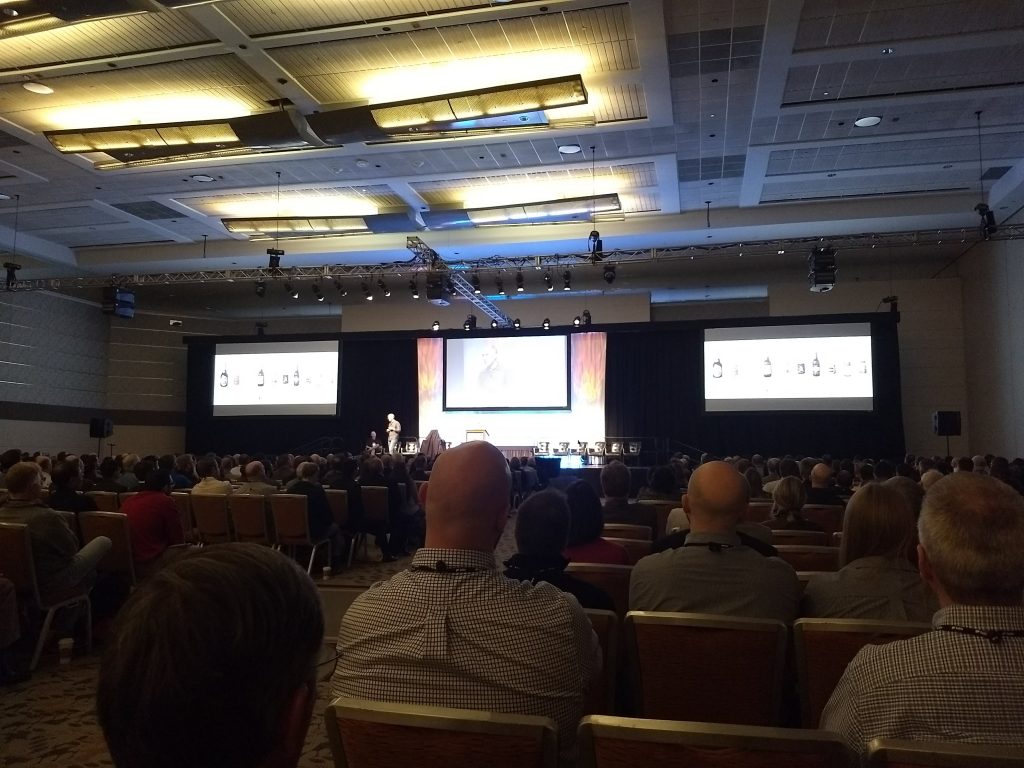
The skills and connections you gain at a conference can benefit you throughout your career. You may be motivated to join a committee or you may learn of a new product and service that can benefit you in your daily tasks. You may also learn about groups that can continuously provide support as you develop in your career.
What Conference Should I Attend?
There are an incredible amounts of conferences held in the US annually. Even within the civil engineering industry, there are usually multiple conferences for each sub-discipline (i.e. structures or transportation). With such a large choice, how should you narrow it down?
Narrow Down By Topic
In terms of topic, it should be relatively easy to identify which area of civil engineering apply to your daily tasks. However, you don’t necessarily have to sign up for a conference only based on what you encounter in your work. You may choose to learn about a particular area you’d like to get more proficient in. Don’t be afraid to choose a topic completely outside of your field – these could have great personal benefit to you as well.
To get started on looking for topics related to you work as a civil engineer, I would recommend first checking out the list of ASCE’s conferences here. Furthermore, research any other professional societies out there for your field and see if they host conferences. For example, AISC (the American Institute of Steel Construction) hosts the NASCC: The Steel Conference annually.
For other topics not related to work, start by listing out your hobbies and focus on those that you believe contribute to your personal growth. You may already follow certain influencers for your hobbies. Check out which conferences they attend. If you are unsure, reach out to them or their community directly to find out.
Narrow Down By Location
After searching through topics, you may have found multiple conferences covering the same topic. I would then recommend narrowing down the conferences to the locations easy for you to travel to (or locations where you have friends that can host you). Travel and lodging are often the largest costs of attendance. It’s even better if the conference is going to be held locally!
As conferences are generally a commitment of a few days, you’ll benefit from cutting down your travel time. You’ll also feel more well rested when you arrive and at the end of your travel. I highly recommend prioritizing those within driving distance.
My Personal Experience
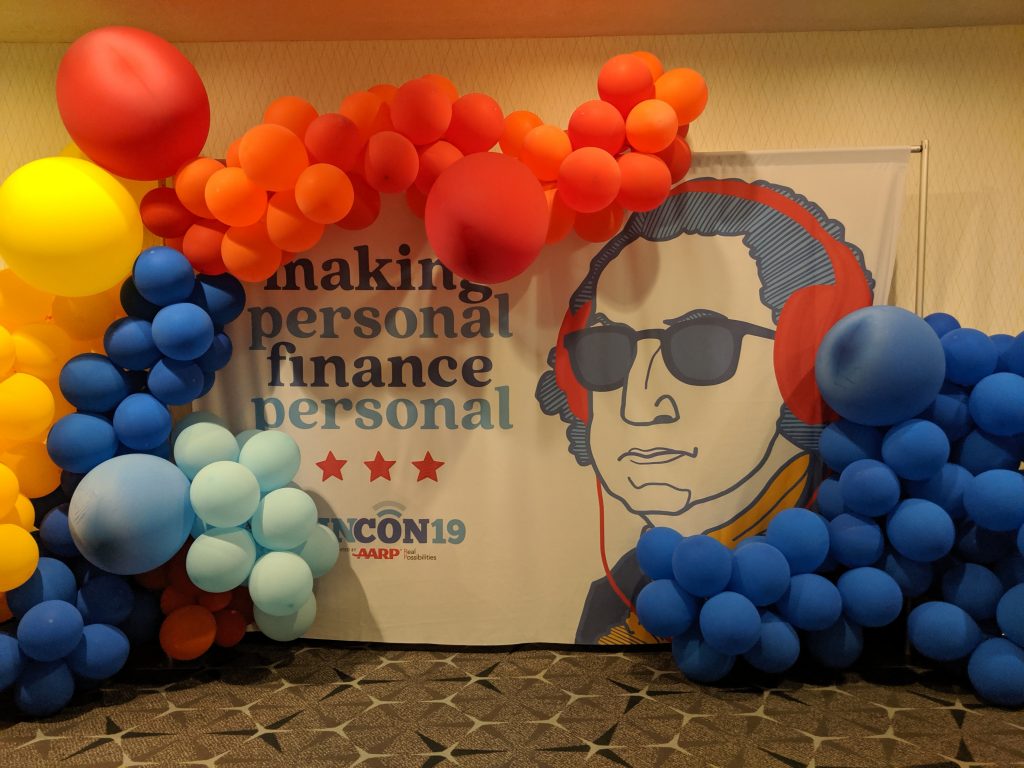
I’ve had the fortune of attending multiple conferences and seminars in my career so far. Most have been a split between technical topics specific to my work as well as general career development. I also decided this past year to attend a conference completely outside of engineering – personal finance. Here’s a list of the conferences and seminars I’ve attended and links to those that have websites.
I’ve been fortunate to be around engineers who are both involved in technical committees and ASCE. They have kept me aware of ongoing events. I’ve also kept tabs on conferences by checking my emails from my professional societies and reading their monthly magazines. This is how I heard of the ASCE, NASCC, and NCSEA conferences. Alternatively, I heard about FinCon through influencers I follow.
To be honest, the majority of the conferences and seminars I have attended have been hosted in the immediate Washington DC (or adjacent) area. This is why you see so many ASCE events on the list as their headquarters are located here. However, I did take the opportunity to travel to the NASCC in Pittsburgh, PA (as a student) and to the ASCE MRLC in Orlando, FL. I drove to Pittsburgh and flew to Orlando.
How much does a Conference Cost?
You may be wondering how much a conference will end up costing you. There’s the registration fee, travel fare, lodging cost, food cost, and entertainment cost. These costs could potentially add up to several hundred dollars!
I’ll break down the categories below and offer up some tips to save money on each category.
Registration Fees
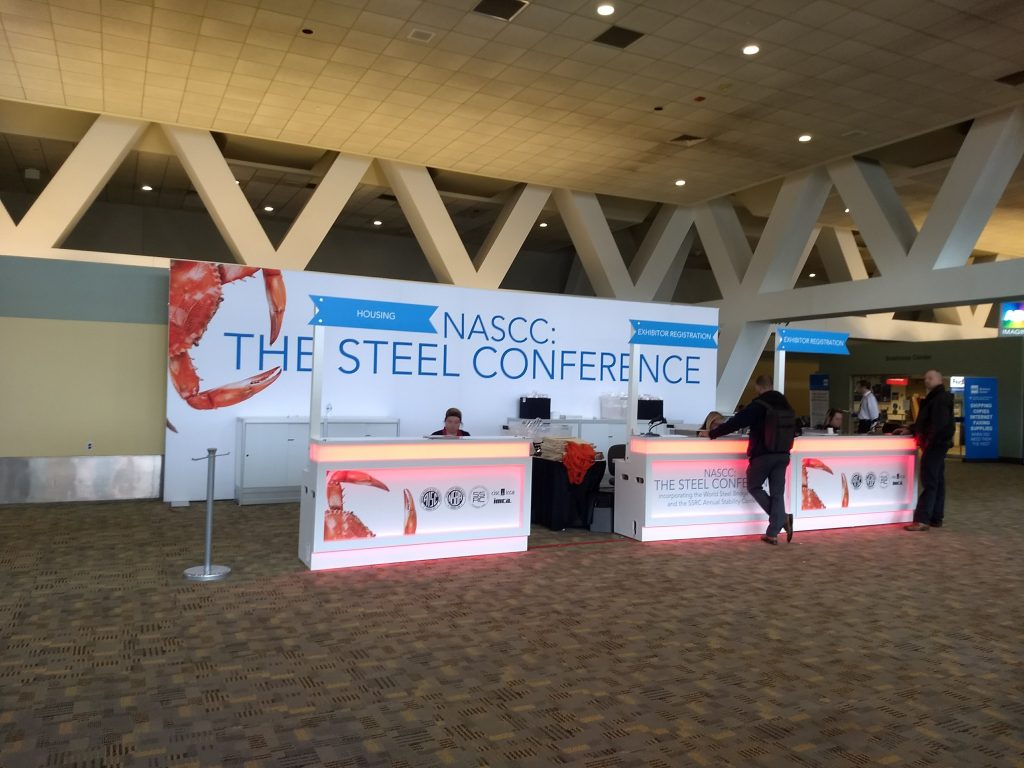
Registration fees are typically the first expense when attending a conference. These fees are usually the second largest cost behind travel and lodging and are time-sensitive with the fees going up as the date of the conference approaches. Additionally, registration fees are often non-refundable. Be sure to commit to conferences with high fees only after you are sure you can attend.
To save money on conferences, always try asking your company or organization to reimburse you for the cost of attendance. The company may have a budget for individuals or groups to attend conferences as part of a training or educational budget. Organizations may allocate money to always send a representative to a particular conference.
You may have to “sell” why the conference is valuable for you and for your company. Often, this is easy to do by just listing either the variety of technical topics and/or various agencies (or clients) in attendance. This won’t work for conferences that just align with your personal interest. If you are not able to get sponsored by your company, here are some additional tips.
- Register Early to Get the Lowest Price
- Check for First-Time Attendee Discounts
- Look for Younger Member Discounts
- Check for Scholarships or Stipends for Younger Members
- Consider Presenting at the Conference
I’ve usually registered as soon as I know I’ll be able to attend to avoid paying late registration fees. Discounts to first-time attendees and younger members have saved me hundreds of dollars. It’s always good to thoroughly check out all the registration options. I recently saved on attending a personal finance conference by choosing the option for individuals who are not influencers in that space. At one of the earliest conferences I attended (NASCC), the organizers provided a student stipend which involved attending a few designated sessions for younger engineers.
I have participated in smaller, local seminars in the past which provided me an opportunity to check out sessions both before and after my session. Offering to do a presentation on a topic may lead the conference organizer to cover the registration cost and either completely or partially cover the travel and lodging cost. There’s no shortage of ways to save money on conference. You just need to thoroughly research the options.
Travel and Lodging

Photo by JESHOOTS.COM on Unsplash
In most cases, travel and lodging represent the largest cost of attending a conference. Bookings have to made in advance to avoid rising prices near the departure date. This can be a hard category to save money on if you are traveling to a distant city. You can set alerts on plane tickets to get notified on the best time to buy. Choosing to attend conferences within driving distance can make the total cost much more affordable.
To reduce lodging costs, start by checking to see if the conference has a special rate at local hotels. You may want to do your own comparison at nearby hotels and Airbnb’s to make sure you can’t get a better rate. Consider the taxi/Uber costs if choosing a hotel further away from the conference venue as you may find that your time could better spent. Saving a few bucks may not be worth it if it means losing out on networking time.
If you have friends and colleagues also wanting to go to the same conference, consider road tripping and sharing a room at the conference. Also check if friends (attending or not) in the area can host you.
I touched on this on the previous section, but check to see if the conference offers any travel stipends for young or first-time attendees. If the conference organizer has a local chapter in your city, you may have more success checking with them.
- Set Price Alerts to Get the Lowest Fares
- Check if the Conference has a Block of Rooms at a nearby Hotel
- Compare Hotel and AirBnb rates in the Immediate Area
- Consider Sharing a Room with a Friend
- Check for Travel Stipends from a Local Chapter
I have been lucky in that I’ve been reimbursed for the two conferences I’ve traveled far to. For all the others, I’ve attended when they were relatively local and planned to drive or take transit.
Food and Entertainment

Food can be a tricky item to save money on at a conference considering many conferences bundle in the cost of meals into the registration fees. You may not want to leave the venue, as meals are a great time to network and connect with other attendees. Regardless, check to see if registration includes meals so that you can plan for the additional costs if they are not provided.
The registration fee will often not include the cost for dinner events or tours that are related to the conference. These events can sometimes have costs in excess of $50 dollars per person per event. If you have the budget, I would recommend going to dinner events as these are always a good time to talk to other attendees. I have never done a tour as part of a conference, but imagine they are also good networking events.
The latest conference I went to did not provide food at its events. However, they had unofficial meetups where you could meet up with groups representing various interests to go out to eat together. I took advantage of this and chose to save money by just ordering off of the lunch menu. It was well worth it as I was able to connect with some like-minded attendees in my area.
The bottom line is that you always want to plan for additional costs for food and entertainment even if some meals are provided by the conference.
How do I Prepare for a Conference?
Preparing for a conference as an attendee is not too difficult, but your experience may be hectic if you do not plan. If you are a speaker or event participant, be sure to have your presentation materials ready well ahead of time. You’ll want to make sure you’re well packed days in advance of your departure.
Planning Your Schedule
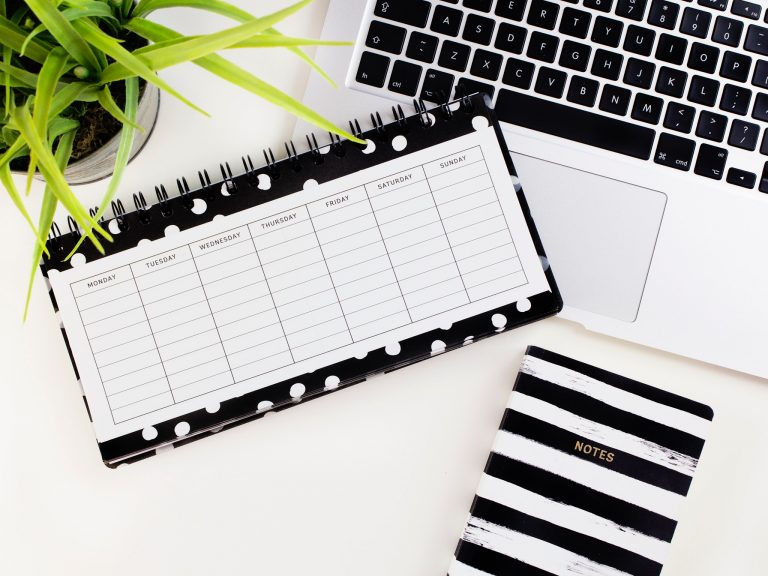
Photo by Emma Matthews on Unsplash
A few months or weeks before the conference, the organizers should send out a final schedule of events. Many conferences have sessions occurring simultaneously, sessions on the same topic occurring at different times, and sessions that are part of a series. You’ll want to carefully review the sessions to pick those that interest you and that would benefit you the most.
It’s likely that for busy conferences you may not be able to make time for every session you’re interested in. Here are some tips to help out:
- Prioritize Sessions that Are Most Important to You
- If Attending with a Friend or Group, Split Up and Share Notes Afterwards
- Check if the Conference Organizers Provide Recordings of the Sessions
Check for events outside of the main conference sessions. These may include early morning sessions, dinner events, tours, vendor presentations, committee meetings, and exhibition halls. If any of these interest you, check to make sure you have the time to check them out. If you do RSVP for these in advance, so you’ll have a spot saved for you.
Once you have a schedule developed, write it down. Even better, many conferences have apps which have scheduling functions built in. You simply bookmark the sessions you’re interested in and the app will typically send you reminders ahead of time with the title and location of the session.
On a side note, you may want to get familiar with the conference venue in order to understand where you need to go. Many of the apps also include a map of the venue to help you get around. Having an understanding of the facility will help you navigate between sessions quickly.
I’ve found conference apps to be immensely useful with both scheduling and getting around. The apps usually have some additional useful features.
Packing Appropriately
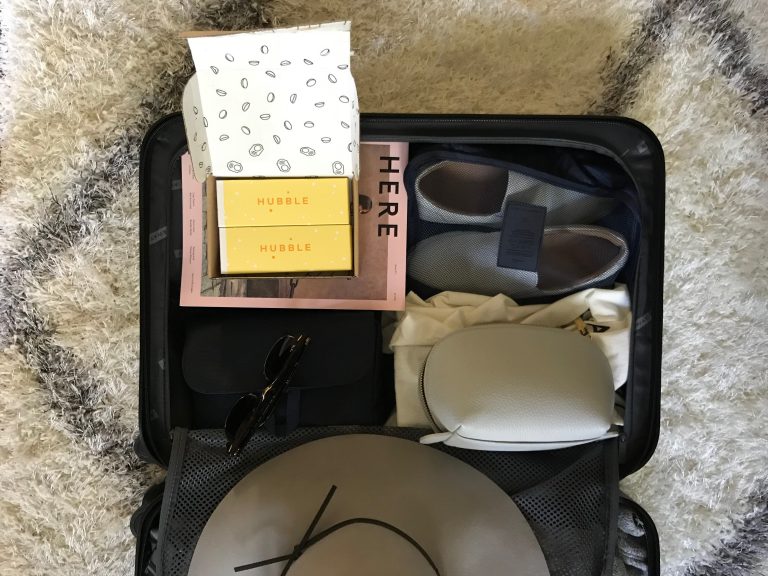
How you pack can vary depending on the type of conference and the duration. You’ll need a change of clothes for each day of the conference and potentially another outfit for the evening or extra events. Also, plan to take supplies to take notes whether its pen and paper or a laptop. I’ve also found it handy to take a power bank or a charger to keep my phone charged during lengthy days. Business cards are also useful although I prefer to connect with people on LinkedIn. A small bag or backpack is also handy to carry around your things as well as to store take-aways from various booths. Sometimes the conference will provide a bag upon check-in and have a program with space to take notes.
Typically, conference attendees wear business casual attire. You usually only see suits and formal wear for evening events. Some events such as tours may just be casual dress. If you are unsure of what to wear, simply Google pictures of the conference from the previous year to get an idea of the attire. At minimum, always pack at least one suit. You’ll also want to make sure whatever type of shoes you bring match your dress and are comfortable to walk in.
Making the Most out of My Conference
If you’ve followed the tips so far, you should be well prepared to have a successful conference. However, attending a conference is much more than simply getting there and attending sessions. To take your experience to the next level, network with other attendees.
One of the unspoken benefits of attending is being able to meet new people and create connections. The best way to do this is to take advantage of the time between sessions and events to introduce yourself to new individuals and groups. This may include walking up to vendor booths to find out about what services and product their company offers. It may be speaking to someone sitting beside you before a session starts. You may approach a group at a table to sit with at lunch. There’s ample opportunity to engage with your fellow attendees.
You can continue the conversations long after the conference by exchanging business cards or connecting on LinkedIn. Conference apps usually have a directory of attendees to help you get the contact info of someone you may have forgotten to get a card for.
If you’re introverted, it may be difficult to make these connections due to the large crowds and constant shuffling between sessions. As an introvert myself, I had a hard time feeling comfortable at some of the earlier conferences I’ve attended. I’ve found that I’ve been able to best connect with people in one-on-one settings away from the noise. I typically have felt most comfortable introducing myself to the person sitting beside me at sessions or at the lunch table. Additionally, I look for open spaces where the sound can dissipate to initiate meaningful conversation. Otherwise, I find myself becoming distracted and having difficulty engaging.
Regardless of how you’ve handled yourself, you may feel zapped by the end of the day. Having small snacks can help, but you need time alone if you’re introverted to fully recharge. I’ve typically used time between the last conference event of the day and the evening event to get some quality time to rest and relax even if its only for an hour. You don’t have to spend the time in your room. I’ve taken walks around the local city or area to do a little sight seeing. Taking advantage of this time to recharge can give you the energy to attend evening networking events.
Conclusion
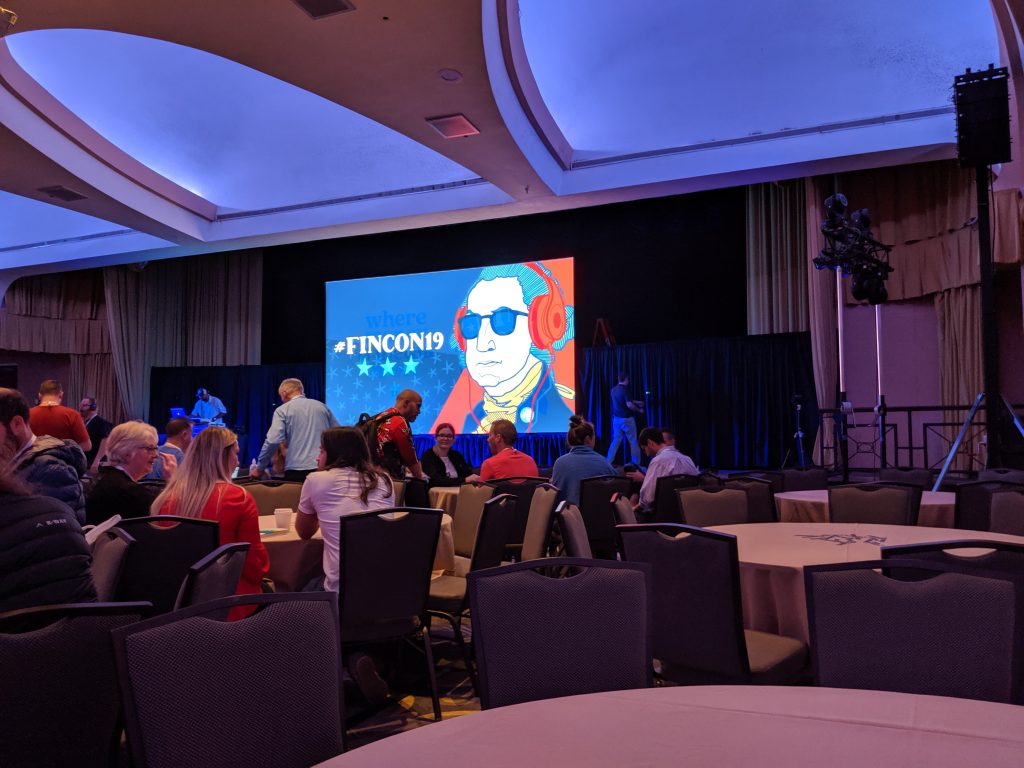
Conferences are great opportunities to add to your technical skill set and grow your professional network. The relatively large costs can be managed and reduced by following the tips laid out in this post. Proper planning will ensure you’re spending your time effectively. Get ready to meet lots of people who can become great resources for your career development.
Key Takeaways:
- Take Advantage of Opportunities to Save
- Have a Plan in Place before Arriving at the Conference
- Network to Make Valuable Connections
Hopefully, you are looking or have picked a conference to attend in the near future. Good luck with planning and hope you find your time well spent!
Helpful Links
Transitioning From a Student to a Professional
Cover Photo by Product School on Unsplash
The content in this post is provided for informational purposes only and does not constitute professional financial advice. Individuals reading this post should consider their personal situation and relevant risks and liabilities before taking any action.
